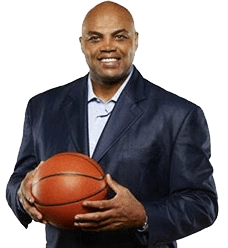In 2016, Charles Barkley marked Black History Month with a daily spotlight on local African-American heroes. Many of them didn’t make it into the history books or even the newspapers of their time. But their stories are inspiring and worth knowing. Here’s another look.
15
Marian Anderson
Singer
Marian Anderson
Singer
(February 27, 1897 – April 8, 1993)
Despite the resistance Anderson faced in venues across the country, she became one of the city’s fiercest and most successful performers, as well as a deliberate (and inadvertent) Civil Rights hero.
She played with the New York Philharmonic in 1929, but is best known for her Easter Sunday 1939 concert on the steps of the Lincoln Memorial before 75,000 people, with millions more listening live on NPR.
That show happened because the Daughters of the American Revolution in Philadelphia refused to allow Anderson to perform at Constitution Hall, prompting Eleanor Roosevelt to resign her DAR membership and arrange the open-air show for Anderson in D.C.
Anderson toured extensively throughout Europe, where her remarkable talent was appreciated by none other than Arturo Toscanini, who told her, “Yours is a voice such as one hears in 100 years.”
Back home, it wasn’t until 1955 that she became the first African American to sing at the Metropolitan Opera.
She fought for more than just her own chance at fame: She was a major part of the civil rights movement, performing in D.C. again for the March on Washington in 1963.
“I could not run away from the situation” Anderson said. “I had become, whether I liked it or not, a symbol, representing my people. I had to appear.”
![]() EDUCATION:
EDUCATION:
- Stanton Grammar School
ACCOMPLISHMENTS:
- First African American to play at Metropolitan Opera in NYC
- Delegate for the United Nations Human Rights Commission
- Goodwill ambassadress for U.S. Department of State
- Awarded dozens of awards but most notably the Presidential Medal of Freedom, Kennedy Center Honors, National Medal of Arts and Grammy Lifetime Achievement award
- Albert Einstein hosted Anderson when she was denied stay in hotels
- Marian Anderson’s center-city home was added to the National Register of Historic Places, and a recreation center in South Philadelphia was named for her
FINAL WORD: “As long as you keep a person down, some part of you has to be down there to hold the person down, so it means you cannot soar as you otherwise might,” she said.
Photo Credit: Wikimedia Commons/Carl Van Vechten


